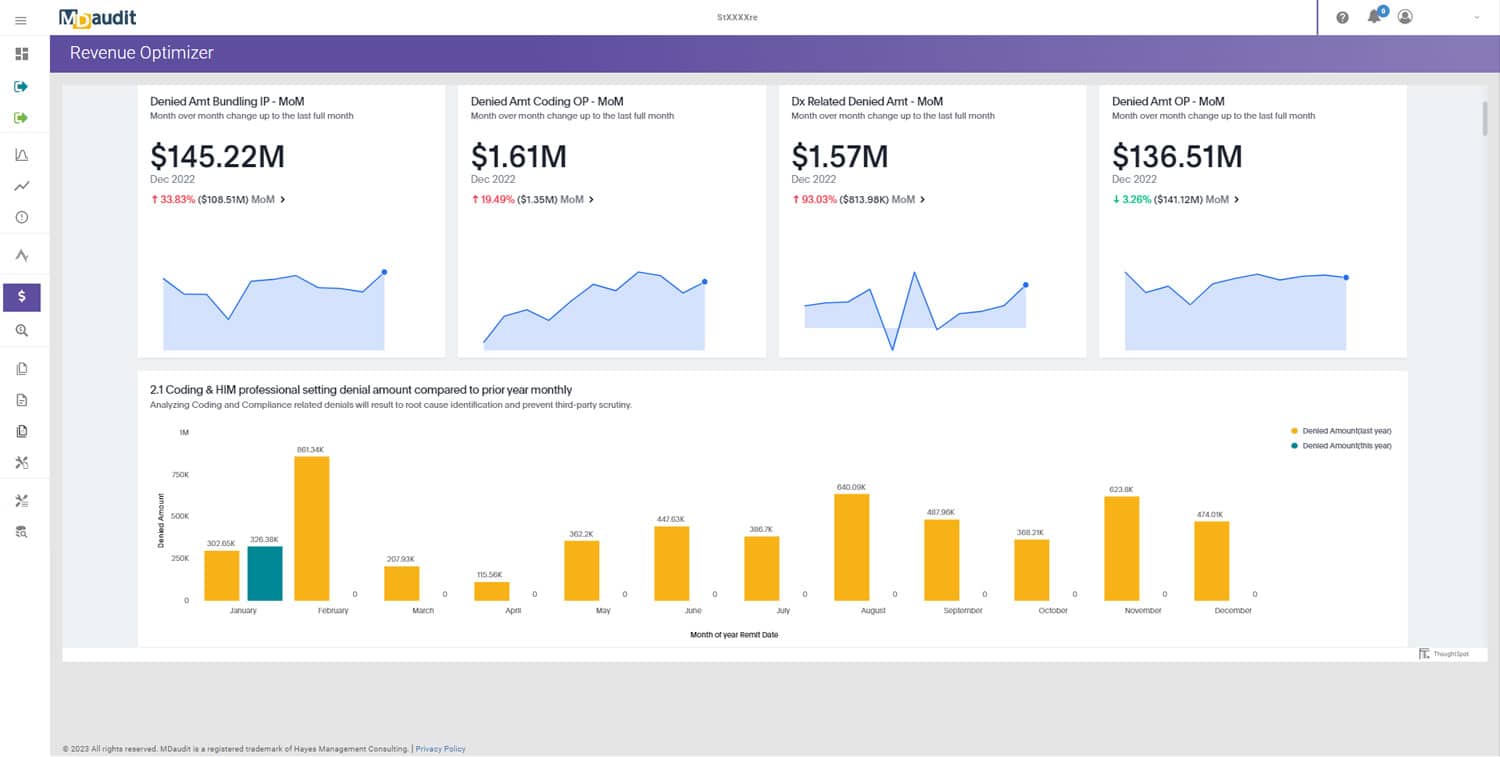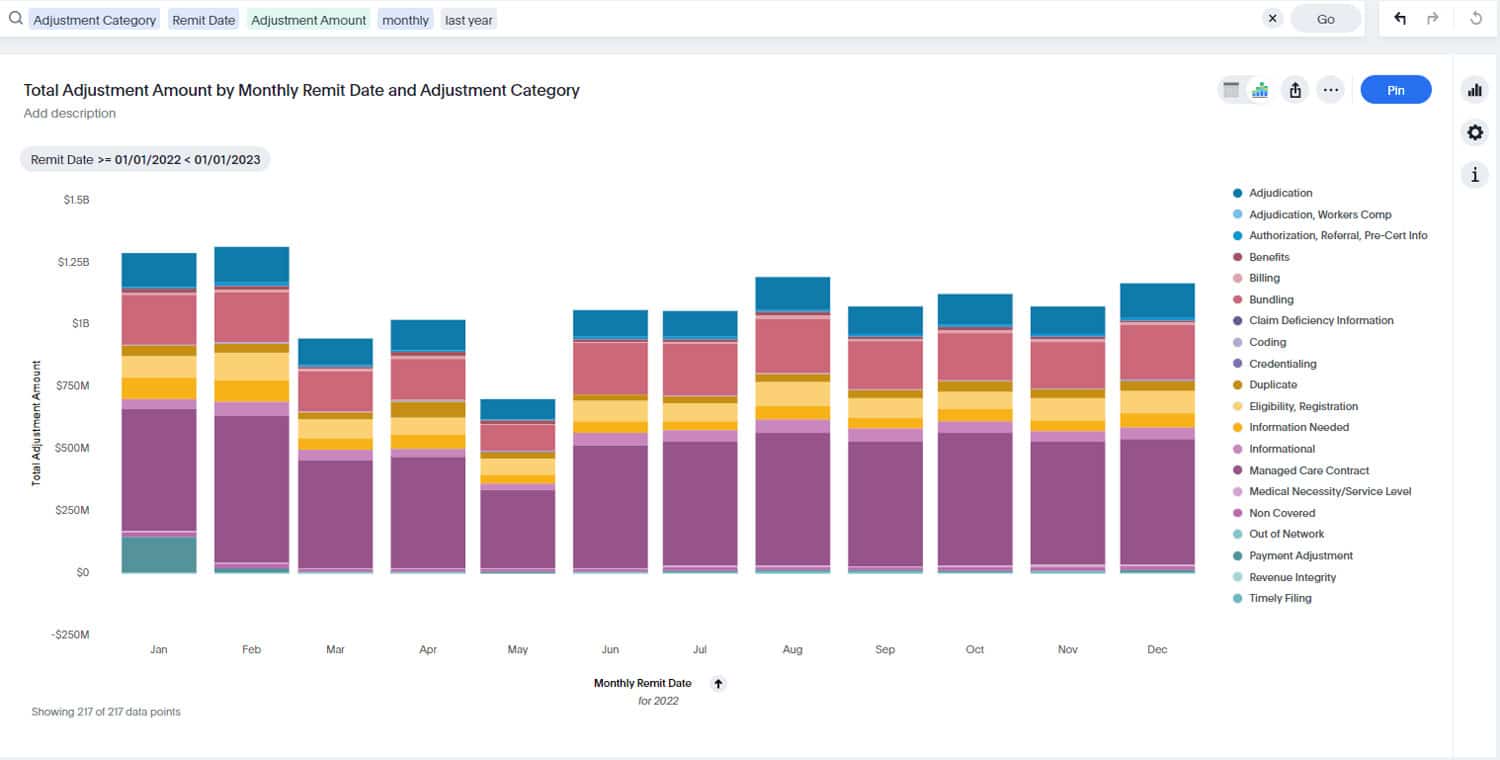With tighter operating margins and shrinking reimbursement rates, you need to ensure your organization is not leaving any revenue behind, nor setting yourself up for compliance risks that could cost your organization thousands, if not millions in fines. To really understand where your revenue and compliance risks are, you need to be able to focus your audits and dive into your billing and reimbursement data in multiple ways, for example, by provider, specialty, procedure, etc. But one of the most overlooked areas to audit is by coder.
Most organizations conduct regular audits of their providers billing, however not everyone has a systematic plan for auditing their coders. Many organizations keep track of their auditors’ productivity, effectiveness and efficiency using spreadsheets – a very manual and laborious process. Other organizations may conduct coder audits only once a year, and there are many organizations that don’t conduct coder audits at all due to both resource and budget constraints. It is critically important that you not only audit your hospital billing (e.g. high risk DRGs, cases with high severity) but that you also audit the coders responsible for making these decisions – having responsible coders with high coding acumen that work with both integrity and accuracy can be the difference between higher reimbursement versus crippling penalties.
What is a systematic approach to coder auditing?
A systematic approach to auditing your coding team requires three critical components.
- Technology that allows you to easily generate the audits and provides insights to know where to focus your efforts. Nobody should be tracking coder audit results on a spreadsheet. It is difficult to keep all the relevant information and data visible, difficult to identify trends and almost impossible to track any discussions in a meaningful way. The right auditing platform will allow you to perform and track coder audits, in addition to the provider billing audits your organization is already doing. It can also incorporate robust analytic dashboarding allowing you to focus your efforts and understand at a glance how the team is performing.
- Regularly scheduled audits and insight reviews will identify those coders that are performing well and those with inconsistencies and accuracy issues. At a minimum you should be auditing your coders quarterly, and more frequently for both new coders and coders previously identified as not meeting accuracy benchmarks. It is also recommended that audits are completed more frequently when significant changes occur to coding regulations such as the introduction of new telehealth codes in 2020 and the new E&M coding mandates in 2021.
- A plan to educate the coders on concerns to eliminate billing errors, mitigate denials and maximize reimbursements. Both as a team and individually, when errors and trends are spotted, you need to take the time to show coders what has been discovered and how to correct it moving forward. There is too much revenue at risk if you don’t.
Tips When Auditing Your Coding Team
Be Positive and Share the Results with the Coders Don’t let the audit process be something coders fear. It should be positioned as a positive, collaborative way to understand how well the coders are doing. Praise should be given for positive outcomes and areas that need work should be presented as educational opportunities.
Focus on the Coders With the Greatest Risk for Errors If Time is Tight When you don’t have time to audit everyone regularly, it is still critical to set aside the time to audit the coders that present the greatest risk to your organization. Both new coders and coders with previous unsatisfactory outcomes will pose the greatest risk. With the right technology in place, you will be able to immediately identity, track and trend on your high performing coders and those that warrant more scrutiny and corrective action/education.
Allow Coder Rebuttal on Audit Findings There will be cases where coder and auditor have a different opinion and/or interpretation of the medical record and coding. Offer the coder a chance to review what the auditor finds and rebut those findings if they disagree. By allowing the coder the opportunity to review and justify their initial coding through healthy dialogue, learning will take place for both the auditor and coder. Ideally your software platform will allow this 2-way dialogue to happen within the software, keeping a record trail that is easily followed and avoiding an unwieldy process of managing it all via spreadsheets and emails.
Prospectively Conduct Audits Prior to Claim Submission Audit your coders both prospectively and retrospectively. By performing prospective (pre-bill) coder audits and catching ‘errors’ up front, you are able to decrease days in AR, increase first pass pay rate and maximize reimbursements. The ability for auditors and coders to have real-time collaboration to ensure pre-bill charges are submitted with the highest level of accuracy and integrity is invaluable to an organization’s revenue integrity.
How MDaudit Enables A Better Coder Auditing and Coder Insights Experience
MDaudit Enterprise is a powerful auditing, billing compliance and revenue integrity platform. Our coder auditing workflow combined with the Audit Insights and Charge Analyzer modules enable healthcare organizations to audit their coders intelligently and have excellent insights into what is working and what needs to be improved. The key benefits of MDaudit Enterprise’s Coder Workflow
- Automatically adds the coder information to billing claims data, allowing organizations to perform coder audits and drill down on coders in our billing and compliance insights dashboards.
- Automates the coder auditing process – MD audit can easily pull a random sample of your coders cases and allow you to review them in just a few clicks via an interactive ‘Coder Dashboard’
- Once you review the cases and append your evaluation, MDaudit will seamlessly send all disagreements to the coders for review and rebuttal
- Auditor and coder can have healthy, collaborative dialogue (both prospectively and retrospectively) to ensure claims are being billed with integrity and recognizing the highest level of reimbursements based on negotiated contracts
- MDaudit auto-captures the coder audit process and provides excellent reporting that can be shared with coding staff for education and corrective action.
- Finally, MDaudit offers sophisticated Audit Insights dashboarding providing immediate insights into coders productivity, efficiency, and areas for improvements.
To learn more about the Coder Audit Workflow within MDaudit Enterprise, you can watch a demonstration of our coder auditing workflow, or request a custom demonstration.








